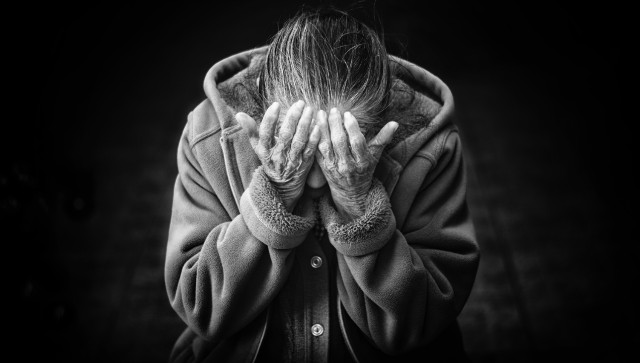The worsening of dementia symptoms with decreasing sunlight, also called sundowning, is a known problem faced by dementia patients all over the world. Studies suggest that anywhere between two to over 60 percent dementia patients, whether in nursing homes or their own houses, have sundown syndrome. The condition often worsens during fall and winter months. Though the exact cause of the condition is unknown, several possible pathophysiologies are attributed to the condition, ranging from changes in the sleep-wake cycle to the effect of medications. A study conducted at the University of Toronto, Canada, has indicated that expressions of certain genes and increase in the levels of Alzheimer’s related proteins (in case of Alzheimer’s related dementia) in the spinal fluid may be responsible for the worsening of sundowning during fall and winter months. Here are some more possible causes attributed to sundowning in dementia along with a set of care tips that can help manage dementia symptoms better. Possible causes of sundowning in dementia patients Experts suggest several possible causes of sundowning in patients with dementia but it mainly involves degeneration of suprachiasmatic nucleus (SCN), a part in the brain that is involved in maintaining the circadian rhythm (sleep-wake cycle) in the body. This area has been found to be affected by increasing age (especially after the age of 80) and neurodegenerative diseases. Alzheimer’s patients are shown to have several neurofibrillary tangles (twisted proteins) in this area of the brain, though amyloid proteins are not that common. Damage to the SCN is also responsible for the reduction of melatonin levels, a hormone involved in maintaining the sleep-wake cycle. Reduction in melatonin levels has also been seen both with increasing age and in neurodegenerative diseases like Alzheimer’s. Other factors that may lead to sundowning include:
- Dysregulation of the hypothalamic-pituitary axis, a system in the brain that is involved in maintaining homeostasis in the body
- Reduced light exposure
- Less availability of nursing staff in the evening hours
- General fatigue
- No daily routine
- Use of certain medications like antidepressants and antipsychotics and health conditions like mood disorders and hearing or visual impairment
Ways to manage sundowning The National Institute of Health (NIH) suggests that following tips to deal with sundowning:
- Be aware of and look for symptoms of sundowning in patients. These include increased agitation, anxiety and confusion. The patient may shout or yell more and keep pacing.
- Make sure they spend a lot of time in daylight. But close the curtains before dusk and turn on the lights.
- Stick to a routine. If you want to change nap time or anything else in the person’s routine, do it slowly and gradually. This will help them cope better.
- Distract them by talking to them, switching on their favourite TV show or another activity.
- Play some soothing music in the early evening and ensure that there is no noise or crowd in their room.
- Avoid giving tea, coffee or alcohol to them later in the day.
- Make them do some physical activity during the day and ensure that they get proper rest during the night.
- Consult a doctor at the earliest if the problem worsens.
For more information, read our article on Dementia. Health articles in Firstpost are written by myUpchar.com, India’s first and biggest resource for verified medical information. At myUpchar, researchers and journalists work with doctors to bring you information on all things health.


)

)
)
)
)
)
)
)
)



